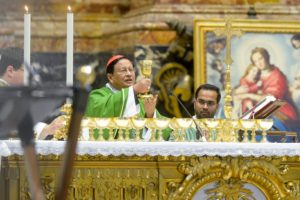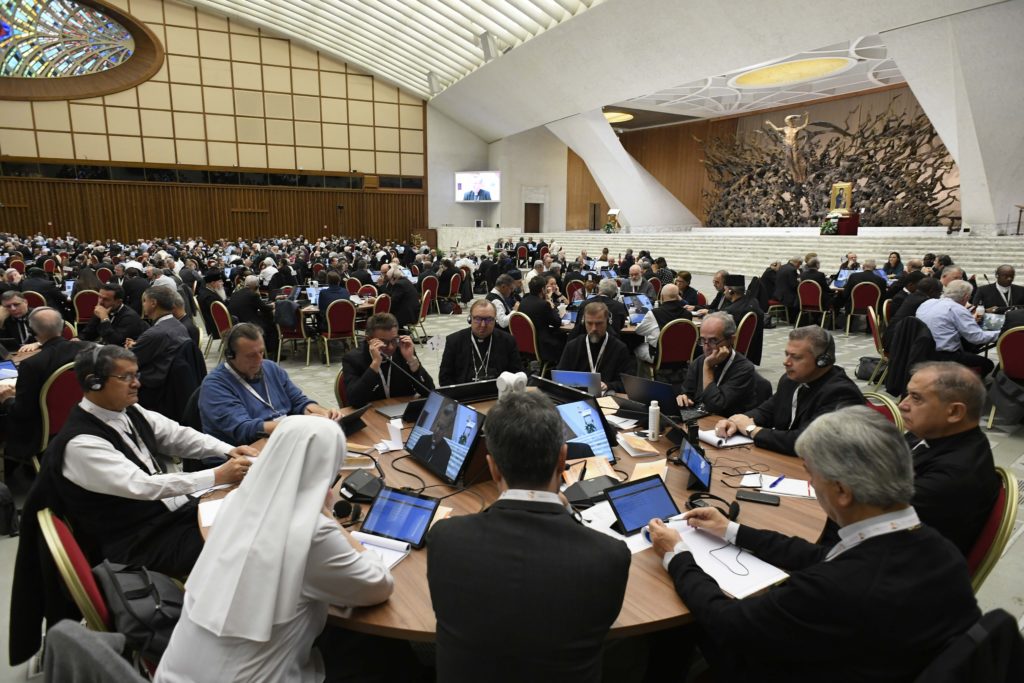ROME — In what is quite possibly history’s most famous garbled quote, Chinese Premier Zhou Enlai in the 1970s supposedly said in response to a question about the significance of the French Revolution, “It’s too early to tell.”
In fact, we now know that Zhou was talking to Henry Kissinger not about the revolution but the French student protests of 1968, meaning something that had happened roughly two years before, not two centuries. Nevertheless, the phrase has passed into common parlance as a classic expression of taking the long view.
As it happens, it’s also probably the best verdict one can render on Pope Francis’ recently concluded Oct. 4-29 Synod of Bishops on Synodality, at least if the question is what it all means for the future of the Church: “It’s too early to tell.”
After all, this synod was merely preamble anyway: The denouement won’t come until next October with a concluding monthlong assembly, featuring the same cast of characters, which will ponder the issues surfaced but left unresolved by this one.
With that caveat, here are four takeaways from the recently concluded synod which, no matter what happens next, seem reasonably well-established.
Precedent
From the beginning, Pope Francis and his team emphasized that the purpose of this synodal exercise, first announced in 2020, was less to produce concrete outcomes than to pioneer a new method of being church, one rooted in listening and dialogue among all the stakeholders in Catholic life: not just bishops but also rank and file clergy, religious, and laity.
That precedent is now on the books, memorably captured in images of members of all those groups sitting around deliberately nonhierarchical roundtables to chew the fat.
One can argue, of course, about the fine print. There’s a case to be made that once again Western voices carried too much weight in many of the discussions, despite the demographic reality that Catholicism today is largely a non-western family of faith, with two-thirds of its membership in Latin America, Africa, Asia, the Middle East, and Oceania.
One could also question whether the laity selected to participate in synodal discussions were truly representative of the broad swath of Catholic opinion, or whether certain constituencies were excluded — for instance, devotees of the old Latin Mass.
In a way, however, those details aren’t the heart of the matter. The point is that from here on out, it will be difficult to have any important conversation about the Church in which the full people of God aren’t represented, however imperfectly … which, perhaps, was the real point Francis wanted to make.
Reminder of complexity
By all accounts, there was a genuine exchange of views on many fronts during the synod, even if a stringent media blackout meant we didn’t know about it in real time.
To take one example, at the beginning much of the conversation about mission focused on the historical association between missionary efforts and colonialism, including warnings about the dangers of damaging, even eviscerating, native cultures while attempting to spread the faith.
Yet as the discussion unfolded, there were also reminders that many of the people actually present in the synod hall were there because of the heroic sacrifices made by previous generations of missionaries. Without discounting the shadow side of overly zealous forms of proselytism, this point of view insisted that Christianity at heart is a missionary religion, and that the contributions of missionaries, both historically and today, can’t just be blithely dismissed.
While perhaps such exchanges didn’t result in scintillating conclusions, they did remind many participants of the complexities involved in pondering the destiny of a global Church of 1.3 billion members — and that, in itself, undoubtedly has value.

Consensus after a fashion
In presenting the meeting’s final document, technically styled a “synthesis,” Maltese Cardinal Mario Grech, secretary general of the Synod of Bishops, insisted that it was “based on the criterion of consensus.”
That was by way of explaining why, on most high-profile questions, such as women deacons and outreach to the “LGBTQ community” (a term, by the way, that never appeared in the document), the synod ended only with calls for further study and discussion. On such matters, the document attempted to offer a reasonably honest x-ray of the differences of opinion that had surfaced, without drawing conclusions which couldn’t be widely shared.
And, yet.
And yet before the synod opened, Pope Francis basically settled two deeply contested issues by his own personal authority, in response to critical questions known as “dubia” (“doubts”), put to him by five conservative cardinals. In broad strokes, the pope delivered a cautious yes to the blessing of same-sex unions, saying it could be done on a case-by-case basis but without a formal rule or policy, and a basic no to women clergy, while allowing that it can be the object of further study.
What we learned, therefore, is that while Francis may prefer to seek consensus as a general rule, when he makes up his mind he’s not shy about pulling the trigger. Put differently, it was a reminder that while the synod may propose, ultimately it will be the pope who disposes.
PR challenge
While for organizers the point of the synod may have been listening and sharing, for much of the outside world, certainly including the media, the absence of any concrete outcomes tempted many observers to style the whole thing as a flop.
To take one example, on Oct. 25 the synod issued a 1,300-word “Letter to the People of God” which not only failed to mention any of the hot-button issues during discussions, but also dealt only indirectly with the wars raging in both Ukraine and Gaza. Veteran Italian journalist Gianfranca Soldati expressed her astonishment in a piece for Il Messaggero which, after recapping the anodyne text, closed with this bit of snark: “Reporting from the Planet Mars, back to you.”
After the final synthesis appeared Saturday night, a Spanish media outlet, left nonplussed by the lack of any clear results, satirically styled this as the “decaffeinated” synod.
Looking ahead to the 2024 edition, synod organizers thus may face the challenge of managing expectations in a more successful way, insisting from the beginning that it’s about the journey rather than the destination.
It might help if the “publicity fast” imposed by the pope at the beginning of the synod, preventing participants from disclosing anything about their discussions, could be modified to at least permit a clearer sense of what actually is being talked about. Doing so might promote impressions that the exchange, in itself, is a sign of health, even if it doesn’t immediately produce the results that some long for and others fear.

